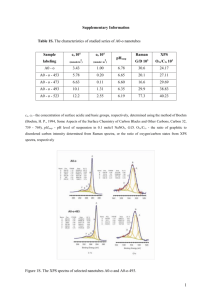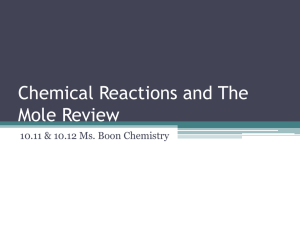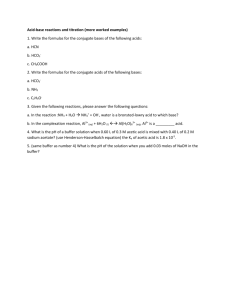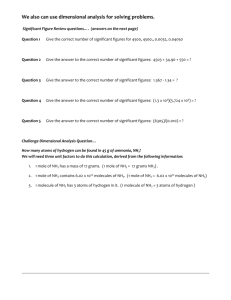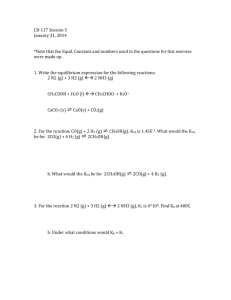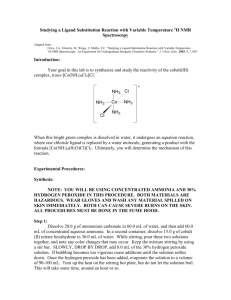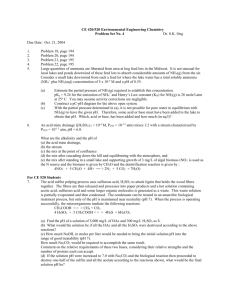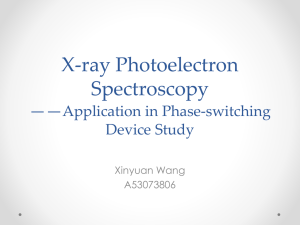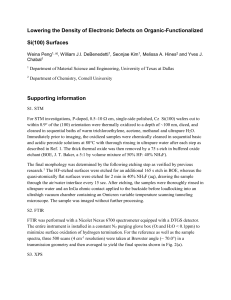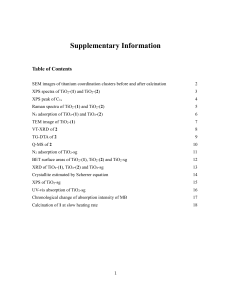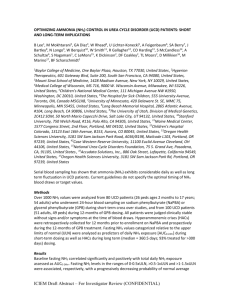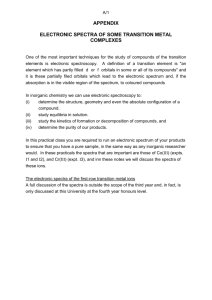XPS spectra, tables of XPS, elemental analysis, and transmission
advertisement
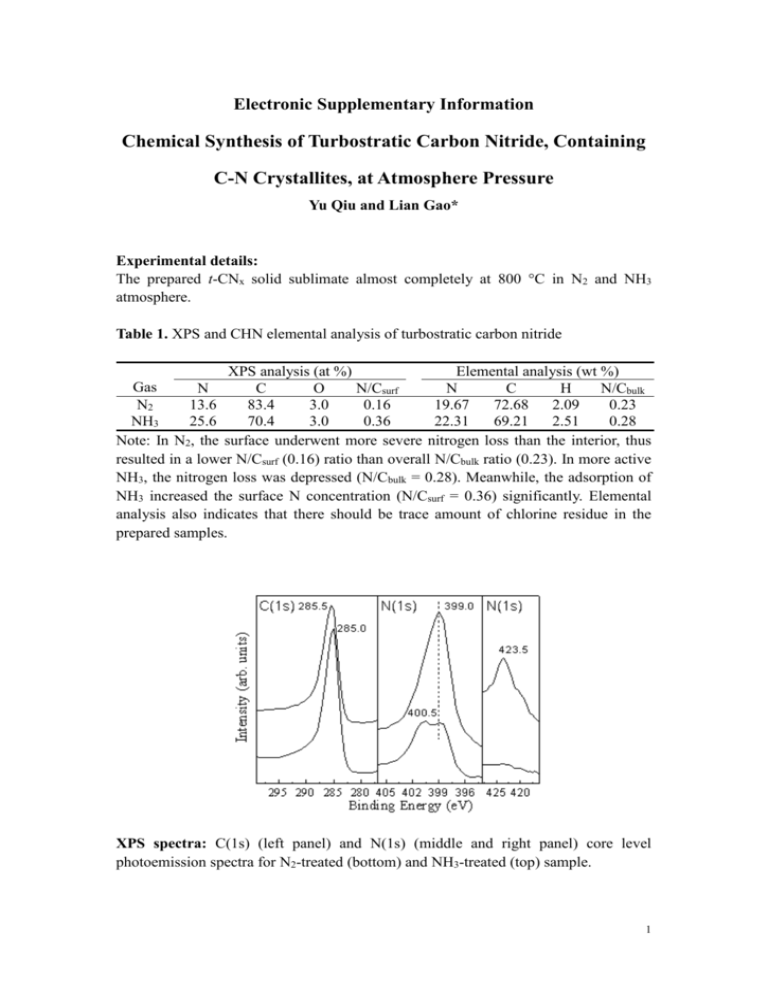
Electronic Supplementary Information Chemical Synthesis of Turbostratic Carbon Nitride, Containing C-N Crystallites, at Atmosphere Pressure Yu Qiu and Lian Gao* Experimental details: The prepared t-CNx solid sublimate almost completely at 800 °C in N2 and NH3 atmosphere. Table 1. XPS and CHN elemental analysis of turbostratic carbon nitride XPS analysis (at %) Elemental analysis (wt %) Gas N C O N/Csurf N C H N/Cbulk N2 13.6 83.4 3.0 0.16 19.67 72.68 2.09 0.23 NH3 25.6 70.4 3.0 0.36 22.31 69.21 2.51 0.28 Note: In N2, the surface underwent more severe nitrogen loss than the interior, thus resulted in a lower N/Csurf (0.16) ratio than overall N/Cbulk ratio (0.23). In more active NH3, the nitrogen loss was depressed (N/Cbulk = 0.28). Meanwhile, the adsorption of NH3 increased the surface N concentration (N/Csurf = 0.36) significantly. Elemental analysis also indicates that there should be trace amount of chlorine residue in the prepared samples. XPS spectra: C(1s) (left panel) and N(1s) (middle and right panel) core level photoemission spectra for N2-treated (bottom) and NH3-treated (top) sample. 1 Table 2. Comparison of the transmission electron diffraction data with the predictions in Ref. 16. The lattice constants calculated from our data are: a = 6.568 Å, c = 4.706 Å. Note: s, strong; m, medium; w, weak; vw, very weak. Observed d (Å) I 3.62 s 2.43 s 1.96 s 1.72 1.52 1.42 1.29 1.21 s m vw w vw 1.08 vw α-C3N4 (predicted) d (Å) (hkl) I 3.60 101 s 3.23 110 s 2.80 200 m 2.41 201 s 2.17 102 s 2.12 210 s 1.90 112 s 1.87 300 s 1.74 301 m 1.57 212 vw 1.48 311 vw 1.33 222 m 1.24 321 m 1.18 004 w 1.13 322 m 2
